Lessons in Magic and Disaster is OUT TODAY. Here's the origin story...
Yes! It’s here! Lessons in Magic and Disaster has been unleashed upon the world! It’s my heartfelt, spiky, overthinky story about queer families and magical education. You can get it anywhere — but you can still get a signed/personalized/doodled copy from Green Apple. OR you can come see me on tour and get it signed and doodled!
Read on for some info about how this book came to be…
I set out to write a mother-daughter story. Then 2020 happened.
How well do you know your own mother? Could you ever really be friends with her, as an adult?
These are some of the questions I was thinking about when I set out to write the book that became Lessons in Magic and Disaster.
Back in 2019, I came up with a fun idea for a novel: A young woman teaches her mother how to do magic. I immediately loved this idea — because I had read so many books about an older person teaching a younger person magic, but never the other way around. And let's face it: When you get to a certain age, you absolutely will find yourself having to teach your parents how to use their phones and other stuff.
I felt like this could be a fun romp about a mother and daughter reconnecting through learning through teaching and learning the mystic arts. I doodled a little bit of an opening back in 2019. It was cute and sweet, but lacked the emotional core that I always look for from stories I’m writing. I set it aside to think about it a bit more.
And then… 2020 happened.
My father died of covid early in April 2020, and there was no way to hold a funeral or to grieve with the rest of my family, who were all on the East Coast while I was in San Francisco.
And meanwhile, the conventional wisdom in the spring of 2020 was that an older person, like my mother, should not go out of doors. At all. We were all advising my mom to stay inside her apartment alone, for months. She was doing laundry in her bathroom sink and having groceries delivered — or my cousin sometimes brought groceries to her. She stayed indoors the whole time, exercising by walking in circles.
I started calling my mother every day from the West Coast and talking on the phone for an hour or two, just to keep her company. We talked more than we ever had before, about grief and loss but also about my parents' marriage and everything else. More than anything, we talked about my father, and processed a little of the endless grief we were feeling. My father had suffered from dementia for several years before he passed away, so it was complicated to mourn someone who hadn’t been able to be in our lives for so long.
But I also got to talk to my mom about random other stuff, including history (which she taught for decades and is still researching.) We talked about why the Spanish empire didn’t last too long, and why chattel slavery took root so deeply in the United States, among other things.
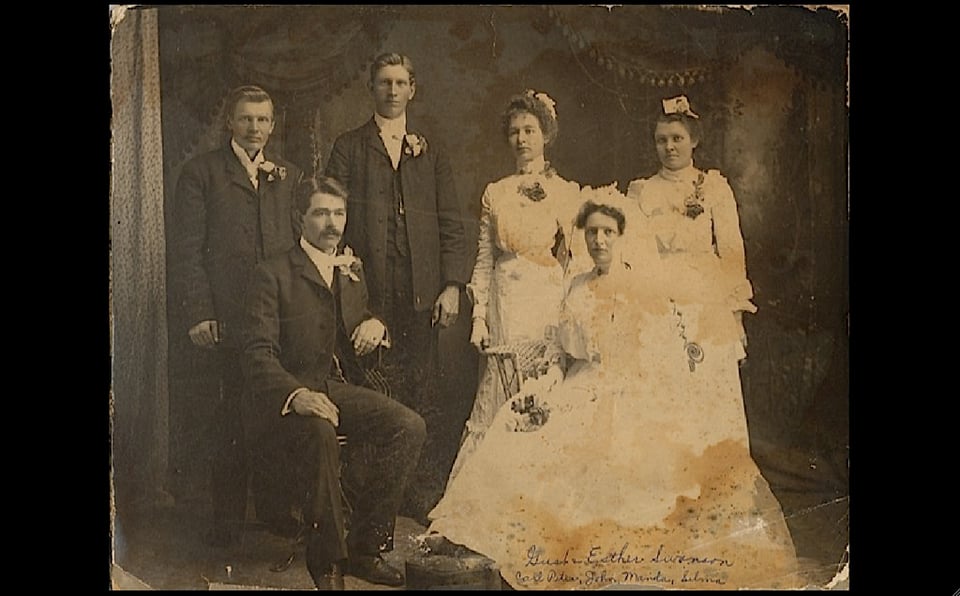
And I got to learn way more about my own family history. I hadn’t been terribly close to my maternal grandmother when she was alive, but it turned out there was a lot more to this quiet, sweet Lutheran church lady than I had ever known.
My grandmother grew up in North Dakota with an ultra-conservative Swedish family. She really wanted to be a dancer, and had serious chops — her best friend went to New York to join the Ziegfeld follies, and my grandmother had plans to join her. But her parents intervened, and she ended up staying in North Dakota to become a teacher.
Later, my Swedish grandma married a Norwegian man, my grandfather — and this was a bit of a scandal. My paternal grandmother hated my grandma, and also apparently believed she was some kind of slut. When her oldest child was born (my uncle), my grandma carried the baby through sub-zero temperatures to meet her mother-in-law. Looking at this baby, red-cheeked from the icy North Dakota wind, my great-grandmother scowled and said, “I see you've rouged the baby too.”
I believe this is a picture of my grandfather’s mother:
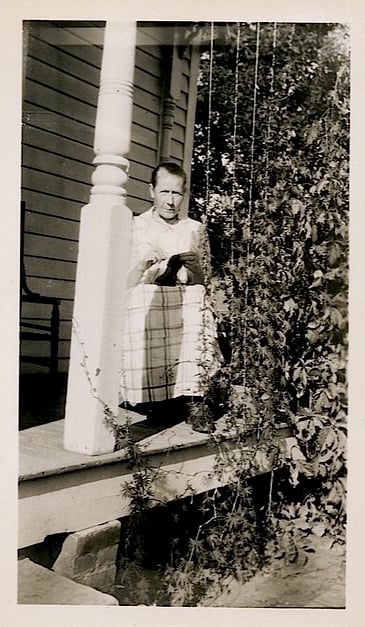
My mom was an ambitious teenager who won a statewide prize for an essay about Alexander Hamilton and got sent to a big national convention. And my grandmother encouraged her to go as far as she could — even cheering for her as she got a PhD and slowly clawed her way to academic stardom. I had never thought about my grandma this way before: as someone who had been prevented from living her dreams, and came away even more determined that my mother would get to live hers.
During 2020, I was working frantically on the third book of my young adult trilogy, Promises Stronger Than Darkness: massive space battles, but also intense debates about the proper use of violence in the face of fascism. I took to working on Promises on my computer during the day, and then crawling into bed with a blank notebook and a shot of whiskey at night to work in secret on my adult novel about a daughter teaching her mother witchcraft.
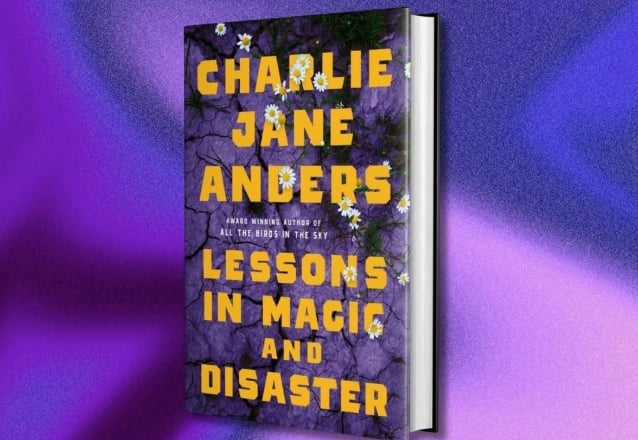
So inevitably, all of the things I was feeling crept into that first draft of Lessons in Magic and Disaster. It grew into a story of grief, resilience, and reconnection. I started to write more consciously about the process of coming to understand your mother as a person, rather than as a mythic force from your childhood. Even as I was growing to understand the sacrifices and challenges that had gotten my mother to where she was. And in the process, I was learning more about my own roots.
I found myself writing about the deep wounds and layers of understanding between mothers and daughters, and how we can help each other heal if we are able to recognize our shared pain. Recently, during an episode of Last week Tonight about tasers, John Oliver said something that resonated with me on a very deep level:
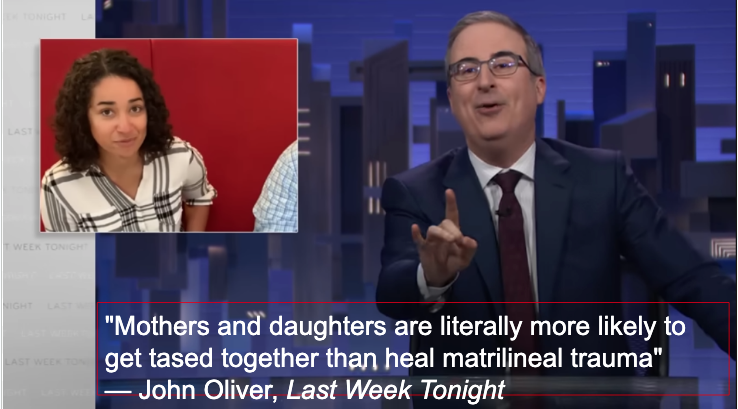
In Lessons in Magic and Disaster, I took a lot of care to show how challenging — and sometimes rewarding — it can be to talk to your parents as a grown-up. Every conversation a minefield, but also a scavenger hunt. And how you never really know your parents as well as you think you do, and there will always be unfinished business between you.
Lessons in Magic and Disaster is not a book about covid — in fact, covid is only mentioned once in passing in the entire book. Nor are the main characters anything like my mother and myself. I didn't fictionalize my own experience — instead, I did what I often try to do: take real emotions and experiences and try to capture their valence through an entirely fictional scenario.
In my novel, Jamie starts out believing that her mother Serena needs to reconnect to the world. Serena has been hiding in an old abandoned schoolhouse for the past several years, since the death of Jamie's other mother, Mae. The reason why Jamie teaches her mother magic is not to empower her, at least not as such: Jamie isn't sure how much magic can actually achieve, but she takes solace from the process of figuring out exactly what you want, and putting that desire out into the universe.
Simply put, Jamie believes Serena needs to start wanting stuff again (as she tells Serena several times). This leads to a lot of conversations about how we can actually know what we want, which I have a feeling my philosopher dad would have appreciated.
Over the course of the novel, though, Jamie starts to realize that it's not a simple as reconnecting with desire — which is something I found myself writing about in my nonfiction book, Never Say You Can't Survive. The interplay between ambition, grief and trauma is complicated, and sometimes you do need to heal before you can chase your goals once again.
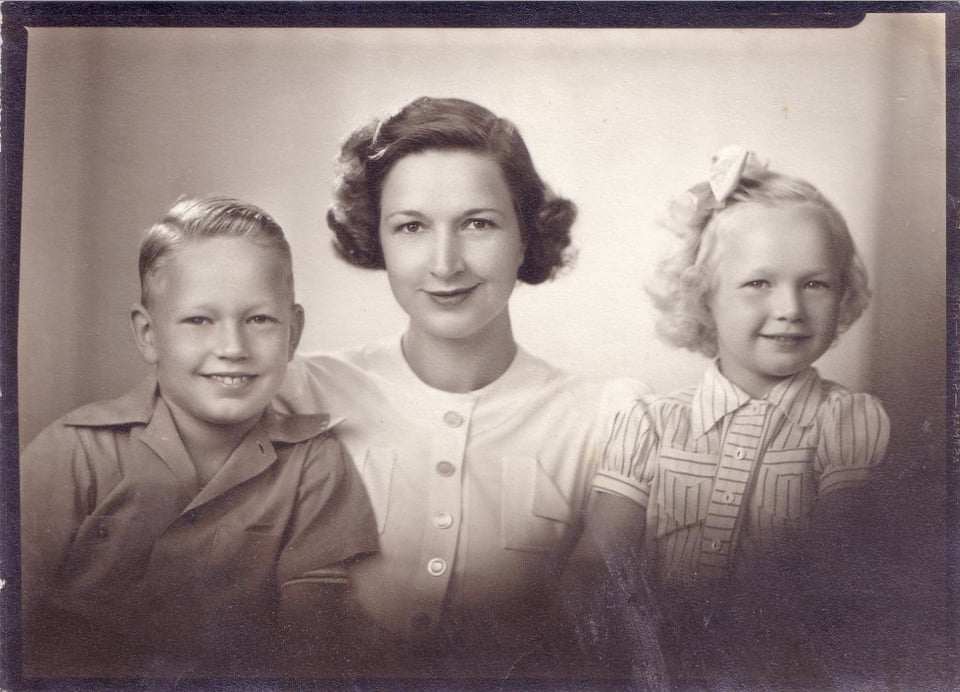
So many people seem to have emerged from the pandemic determined to make up for lost time in pursuing all of our wants and needs, without really allowing ourselves to mourn everything we lost. So I feel as though the resulting novel is more timely than I could possibly have guessed back in 2020.
I started my writing career thinking of myself as an absurdist writer, which led to a lot of stories featuring cardboard characters in bizarre situations. It took me a long time to get better at writing fully fledged human beings, and I eventually started to think of myself as a writer of relationships — which, frequently, unfold in an absurd world. (If anything, I think bizarreness and illogic of our collective situation only increases the need for deep emotional ties with other people.)
But lately, I've started to think of myself more as a therapeutic writer, because I find my work going back again and again two things of healing and understanding. As I've said many times lately, I love stories where people learn to see each other — and themselves — more clearly. And I'm increasingly interested in how people find their way to healing and restoration, rather than the climax being a huge explosion.
So now you know why I keep saying Lessons in Magic and Disaster is my most personal work in a very long time. And how it connects to the larger themes in my work as a whole. I'm so grateful to everybody so far who has told them that this novel made them cry, but also spoke to their own still healing wounds. Y'all are amazing and I am so grateful for all of you.
Sorry I don’t have time to write more music recs this time — I’m hoping to get back to those soon.
Just wanted to remind you that my book is available in all the places, and sales in the first few days of a book’s release make a massive, huge, incredible difference in how much it sticks around.
You can get Lessons in Magic and Disaster from Bookshop, Powell’s, Amazon, Barnes and Noble, and elsewhere. And if you want it signed, personalized and doodled, please pre-order from Green Apple and put personalization details in the comments field. The audiobook (which I’m super pleased with!) is available from Libro.fm, Audible, Apple, and lots of other places.
I’m going on tour starting tonight, and I’m going to be in:
Green Apple on the Park, San Francisco (tonight!)
Powell’s Books, Beaverton, OR (tomorrow!)
Women & Children First, Chicago, IL (Thurs!)
North Figueroa Bookshop, Los Angeles (Fri!)
The San Diego Book Festival (Sat!)
Third Place Books, Lake Forest Park, WA (Mon!)
Charis Books (Sept. 2!) Plus I’ll be at Dragon Con.
More details, and links to RSVP, are here.